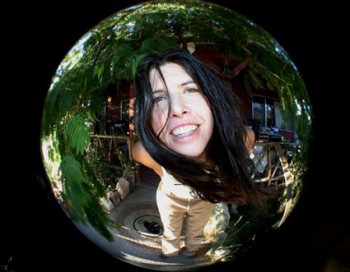
No pyrotechnics. No special effects. No dancers, no lasers, and no backing band. Just a thin, frail-looking woman with frayed hair, a beat-up acoustic guitar, and a squeaky yet wizened voice — the stuff of musical immortality.
View after view after view, Victoria Williams’ performance of the great Sam Cooke’s “Change is Gonna Come” captivates and inspires me. When I start to get those existential doldrums and life gets to looking like it’s not worth the time, I go back to the performance. It reminds of what being human feels like, something that seems easier and easier to forget these days.
Williams recorded this performance for Sweet Relief III: Pennies From Heaven. The proceeds from that album, as with all Sweet Relief Fund projects, go to musicians who are in serious medical or personal need.
Williams was actually the recipient of the very first Sweet Relief album, titled Sweet Relief: A Benefit for Victoria Williams. That project was conceived in 1993, after Williams was diagnosed with multiple sclerosis.
I don’t even like bringing up her disease, because it too easily becomes the centerpiece of any conversation about her, and because it’s too likely to draw pity. As far as I’m concerned, Williams is too big for pity. That’s why I didn’t even bring up the subject when I interviewed her in 2016.
Williams was always the most long-shot of mainstream success stories. In the 90s, when everyone else was either singing about depression and vapid boy-man-band infatuations, Williams was jubilantly singing about polishing shoes and how happy she was to have known her Pappy.
Her personality beamed through in every song. The one that may always best define Williams was “You R Loved,” because even when she was singing about shoes, that seemed to be what she was saying.
Ultimately, the history behind Williams’ “Change is Gonna Come” doesn’t even really matter, because it exists in perfection in its own context. The history of the whole damn human race is there to see in it.
I’ve shared this performance with nearly everyone I know, but not everyone seems to see what I see. That’s fine. They don’t have to.
But, for those of you attuned to the same frequency, I’m confident you’ll see what I mean and why I wanted to write a piece about this song.
The pain and joy of life come out of Williams’ every word, every movement. There’s nothing but honesty as she sings, “It’s been too hard living / I’m afraid to die / Because I don’t know what’s up there / Beyond the sky.”
Those aren’t Williams’ words, of course. The song was written by Sam Cooke, that brilliant musician taken far too early from the world. But, here, in the three-and-a-half minutes of her performance, Williams makes these words her own and speaks for the uncertainties that plague each and every human being on the planet, all at more times in our lives than we care to admit.
Yet, nothing about Williams’ performance smacks of self-pity or resentment. There’s elation there, too, and gratitude, because the ride might be rough but it’s still one hell of a ride, after all.
For me, the highlight of Williams’ performance comes at 2:25, when she sings “What he winds up telling me / It brings me right down to my knees” (these words are actually significantly altered from Cooke’s original), and she has to stop playing and can only shake her head in silence. In that moment we feel all the contradictory aspects of human existence, all the paradox of living.
There’s love, yes, but also so much pain and loss, disease and doubt, so many dark days. Yet, it’s all still so beautiful that, in the end, in our most honest hours, we can only shake our heads…or fall to our knees.
There’s nothing more I have to say, and I’m sure as hell not interested in trying to quantify my love for this performance in some logical, rational way. As far as I’m concerned, it’s three-and-a-half of the best musical minutes ever caught on film.
Ragged, frayed, a voice that cracks…yet sings still, and sings beautifully, and sings immortally. Victoria Williams is a gift and a reminder of what being human feels like. Few have left behind more love and joy, and I’m just glad to have found her music.
Hi. I loved to see and listen. As one as a woman is older there is more spontaneity. Although there are women who do not accept being seen within their originality. The singer expressed herself and I felt free. Congratulations. Thanks for giving me the opportunity to see it. He invites me to be every day me.
Downvoting a post can decrease pending rewards and make it less visible. Common reasons:
Submit